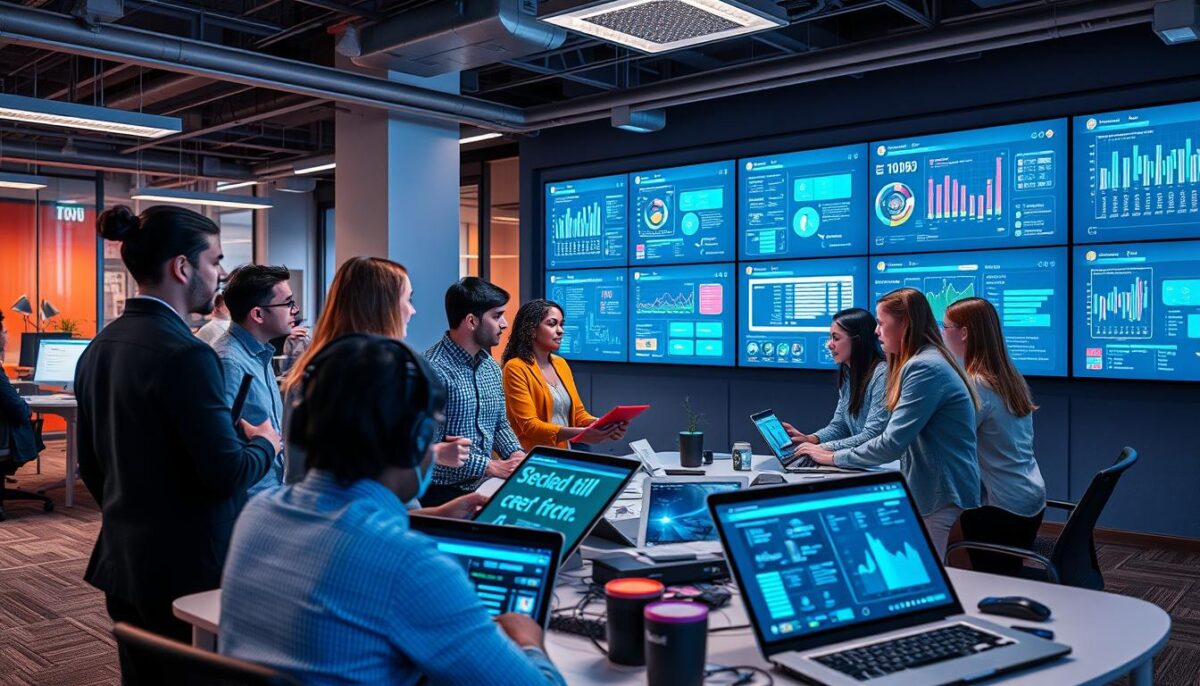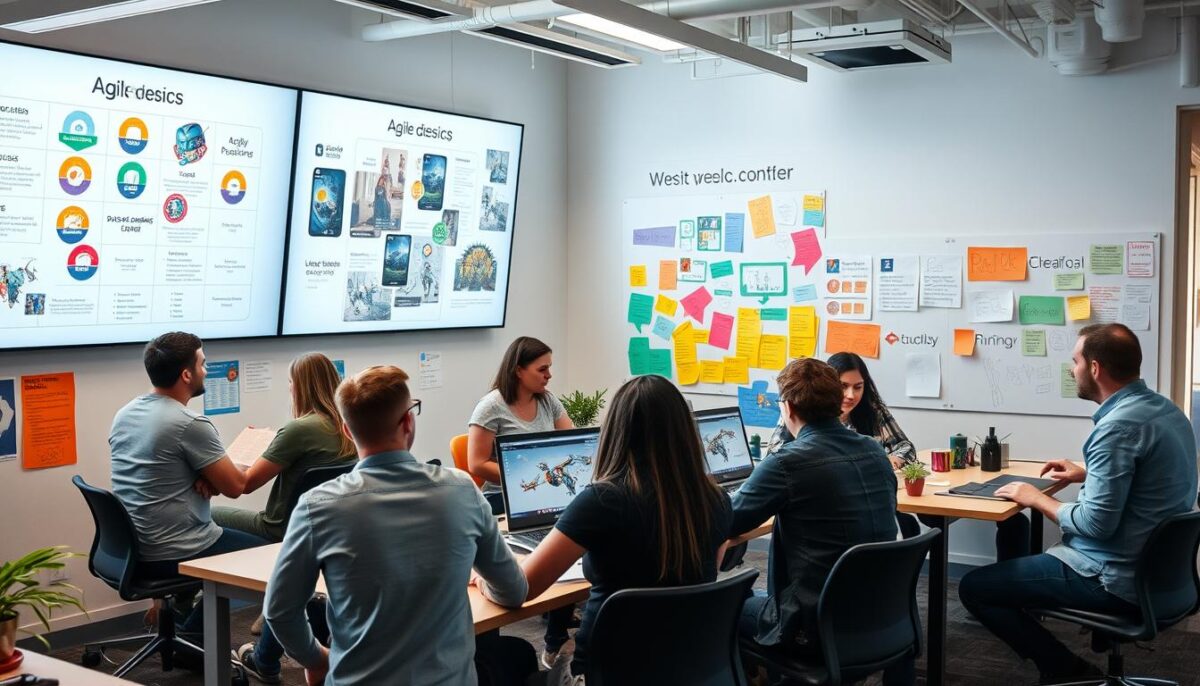In today’s rapidly evolving technological landscape, organizations must prioritize targeted tech learning to remain competitive. This specialized approach not only addresses skill gaps but also fosters employee skill enhancement, directly correlating with enhanced performance improvement. By investing in tailored training programs, companies can drive organizational growth while aligning their workforce capabilities with industry demands.
Platforms like LinkedIn Learning and Coursera exemplify the effectiveness of targeted tech learning, providing resources that meet the unique needs of diverse industries. The digital transformation in educational resources allows organizations to implement flexible and personalized learning experiences crucial for retaining top talent and improving overall efficiency.
The Importance of Targeted Tech Learning
In today’s dynamic work environment, addressing modern workplace challenges requires focused and effective strategies. Targeted tech learning plays a vital role in empowering employees with the necessary skills to navigate evolving challenges. As industries undergo rapid transformations partially driven by technological advancements, companies must proactively enhance employee skill sets to remain competitive.
Enhancing Employee Skills for Modern Challenges
Employee skill enhancement is essential for fostering an agile workforce ready to tackle diverse responsibilities. Continuous upskilling not only supports personal development but also aligns with organizational needs. Research shows that companies prioritizing targeted training initiatives report improved employee performance and satisfaction, which ultimately benefits the business as a whole.
Aligning Learning Objectives with Business Goals
Strategic business alignment ensures that learning initiatives resonate with the core objectives of an organization. By establishing clear connections between employee development and overall business strategies, companies can create a robust framework for success. This deliberate alignment cultivates a culture of improvement, encouraging employees to engage with their professional growth while directly impacting productivity and performance metrics.
| Feature | Employee Skill Enhancement | Business Alignment |
|---|---|---|
| Focus Area | Specific tech skills relevant to roles | Meeting company-wide objectives |
| Impact on Workforce | Increased adaptability and performance | Enhanced organizational efficiency |
| Long-Term Benefits | Retention of top talent | Alignment with future growth opportunities |
Targeted tech learning meets organisations needs
In today’s rapidly evolving digital world, organizations must implement targeted tech learning to meet their unique workforce challenges. Creating custom learning pathways aligns training with individual skill sets and company objectives, fostering a culture of continuous improvement.
Creating Custom Learning Pathways
Custom learning pathways allow businesses to tailor training programs specifically for their employees. By assessing existing skill levels and identifying areas for growth, companies can develop focused initiatives that address their workforce’s needs. This approach not only increases employee engagement but also ensures that relevant technologies are mastered, leading to enhanced overall performance.
Measuring the Impact on Performance
Performance measurement is crucial in evaluating the success of training initiatives. Organizations commonly utilize key performance indicators (KPIs) and employee feedback to assess the impact of their custom learning pathways. Regular analysis helps businesses understand how training translates into improved job performance, employee satisfaction, and productivity. Implementing these measures provides insights that inform future learning strategies and investments.
Case Studies of Successful Implementations
Successful case studies illustrate the effectiveness of targeted tech learning. For example, PwC has documented substantial performance enhancements through its digital upskilling programs. Their approach involved structured learning journeys that empowered employees to navigate technological advancements effectively. Such successful case studies reinforce the value of investing in tailored learning solutions, as organizations witness significant returns in employee capabilities and overall business performance.

Future Trends in Tech Learning
The landscape of tech learning is rapidly evolving, shaped by various emerging technologies and innovative learning methodologies. Future trends indicate a substantial integration of artificial intelligence (AI) and machine learning (ML) within learning platforms. These developments enable adaptive learning experiences that adjust in real-time according to student performance, promoting a more personalized educational journey.
Moreover, the incorporation of virtual and augmented reality (VR/AR) is becoming increasingly prominent. These immersive technologies create engaging training environments that not only capture learners’ attention but also enhance knowledge retention. Companies like Google are at the forefront of these employee training innovations, implementing AI-driven learning models that tailor content delivery based on user interaction and progress.
As remote work continues to be the norm, there’s a growing demand for innovative online learning solutions that foster collaboration, even from afar. This shift necessitates that organizations remain proactive in embracing these tech learning developments to maintain a competitive edge in workforce training. By doing so, they equip their employees with the skills necessary to thrive in an ever-changing digital landscape.



